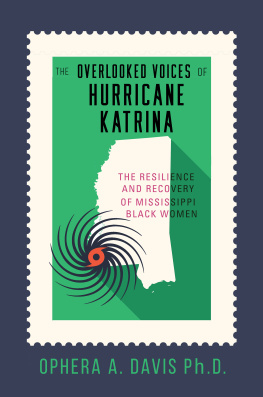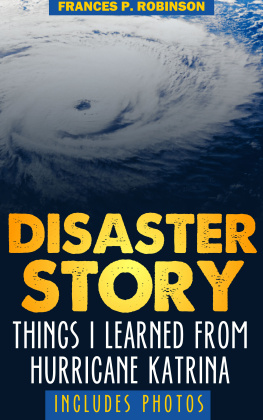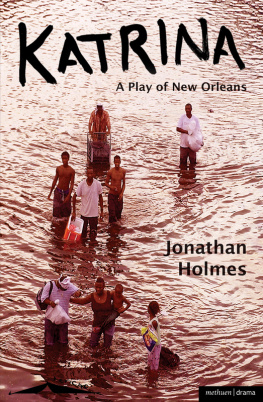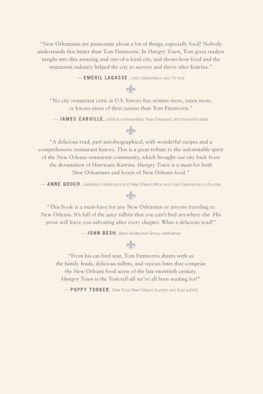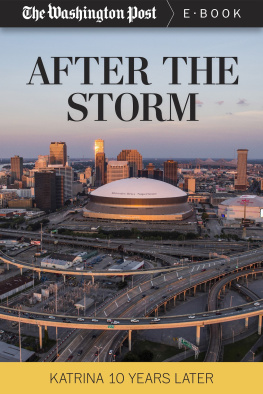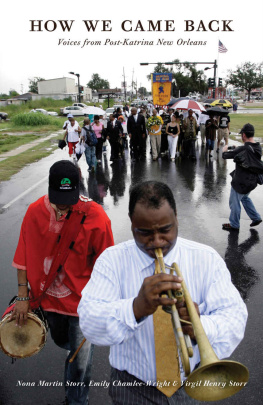Acknowledgments
Many scholars have taken the time to provide feedback and advice during the course of this project. First and foremost Clarence Stone, to whom we dedicate the book, continued in his role as mentor to both of us. Clarences constant willingness to supply insightful critiques played a critical role in this work. His kindness, generosity, and intellect make him a true pleasure, and we thank him both for his efforts in this research and, more important, for his friendship.
Several other scholars made substantial contributions to the direction and content of the book. We thank George Capowich, Susan Clarke, Robert Collins, Peter Eisinger, Steven Erie, and Robert Whelan for their significant assistance. J. Celeste Lay and Chris Fettweis are the best of friends and colleagues. They read earlier versions of the book and made it a lot better. Thank you.
Colleagues attending the annual meetings of both the American Political Science Association and the Urban Affairs Association offered guidance and support, especially Matthew Crenson, Emily Farris, Mirya Holman, Cynthia Horan, Paul Kantor, Mickey Lauria, Paul Lewis, Stephen McGovern, Karen Mossberger, Robert Montjoy, Karen Orren, Joel Rast, Joshua Sapotichne, Hank Savitch, Todd Swanstrom, Jessica Trounstine, Linda Faye Williams, and Margaret Weir. We also thank Michael McGandy of Cornell University Press. Michael saw the promise in this book well before its completion and has supported us throughout the process.
We wish to thank all of the people we interviewed; they spent many hours educating us about the governance, politics, and policy of pre- and post-Katrina New Orleans.
Peter Burns thanks his colleagues at Loyola University New Orleans and Dartmouth College for their encouragement and feedback throughout the project. They include Natasha Bingham, Sean Cain, Michael Cowan, Phil Dynia, Mark Fernandez, Phil Frady, Eric Gorham, Mary Troy Johnston, Sam Joel, Young Soo Kim, Gerardo Lopez, Larry Lorenz, Will ONeill, Luis Miron, Conrad Raabe, Andrew Samwick, Tommy Screen, Ron Shaiko, Roger White, and Kevin Wildes. Special thanks to Wendy Porche and Chris Wiseman for all their help. The book would not have been possible without the love, support, and guidance provided by Ed Renwick. Loyola students who helped with the project include Helena Buchmann, Allison Cormier, and Ellie Diaz. Many people read earlier versions of the book. They include Renia Ehrenfeucht, David Marcello, Robert Montjoy, Marla Nelson, and Bob Whelan. Thank you. Mike Berner, Adria N. Buchanan, Jessica Cantave, Brittany Dapremont, John Erlingheuser, Sean Gorman, and Elise LeMelle are great friends who supported me during this project. Matt Thomas is the best friend and co-author I could ever hope for in life.
My parents, Peter and Pat Burns, provided me with all the support I needed (and more) to succeed throughout my life. Patty Burns, Ed Thorn-dike, and Holly Thorndike make up the best family a brother, brother-in-law, and uncle could ever dream of.
Matt Thomas thanks his colleagues in the political science department at California State University, Chico. For their constant encouragement during the duration, I am especially grateful to Sharon Barrios, Jon Caudill, Alan Gibson, Ryan Patten, Robert Stanley, Charles Turner, and Lori Weber.
My coauthor, Peter Burns, is both a colleague and a dear friend. Working with him lends credence to the adage that two heads are better than one. Thank you for everything, Pete.
I owe a debt of gratitude to my parents, John and Jill Thomas, who instilled a love of reading and learning in me; my path to academia is easily traced to their influence. My sons, Zachary and Liam, are sources of pride and wonderment, and even on the toughest days, spending a few minutes with them brings joy to my heart. Most important, my wife, Kristen, was there every step of the way, with an infinite supply of patience as I returned to the office night after night to write (and perhaps more important, when I headed to New Orleans each summer for research trips). Her love and support mean the world to me. Thanks H.B.
Introduction
Rebuilding Governance, Politics, and Policy in New Orleans
New Orleans was different after Hurricane Katrina, but it was not new. On February 12, 2014, a federal court convicted former mayor C. Ray Nagin on twenty counts of conspiracy, bribery, wire fraud, money-laundering conspiracy, and filing false tax returns. That a New Orleans public official used his position of authority to enrich himself and his family was not new, but Nagins case was different. He was the first mayor in the history of New Orleans to be convicted on corruption charges. The sustained attack by the federal government against public corruption in post-Katrina New Orleans and the citizens lack of tolerance for corruption were not new, but they were different.
The governance, politics, and policy of post-Katrina New Orleans differed from their pre-Katrina predecessors, but in many instances change began before the storm. Of all of the facets of Hurricane Katrina and its consequences, the ways in which the disaster changed governance, politics, and policy are the least understood. Government leaders at all levels, scholars, and the media use a variety of indicators to gauge the recovery: repopulation, the number of buildings and homes repaired or rebuilt, infrastructure restored, and the number of jobs regained. These measures do not tell us much about the decision-making process or which groups won or lost as a result of Katrina.
After Hurricane Katrina, several questions resounded for people who were considering a return to New Orleans: Where will I work? Where will my children go to school? Where will I live? Will I be safe? Each of these questions is tied to a particular public policy arena: economic development, public education, housing, and public safety. In the chapters that follow, we examine each of these policy areas to provide the details of what has changed and who benefited.
Unlike most other books about disaster recovery, this one explores the dynamics of governmental and political reconstruction. To what degree would the storm affect this struggle between the citys embedded interests on one side and extralocal actors and reform-minded locals on the other? One aspect of our analytical framework places change on a continuum. At one extreme, the status quo prevails after disaster; those who held advantaged positions continue to defend their vested interests and resist large-scale change. Other disaster-stricken cities have also struggled to make significant changes to governance. San Francisco had created a new city plan prior to the earthquake and fires of 1906, but except for the construction of a civic center, it ignored that plan in its rebuilding efforts. The governing coalition in Waco, Texas, resisted governmental intervention of all kinds before a tornado hit the city in 1953. The citys antigovernment ethos dominated recovery decisions and resisted change. Citizens deep-seated beliefs are baked into a city and its institutions over time. Disasters do not wipe these beliefs away, in spite of rhetoric about a new day or opportunities to start afresh. Post-disaster periods can experience a resurgence of past patterns because people, institutions, and the ethos persist.


